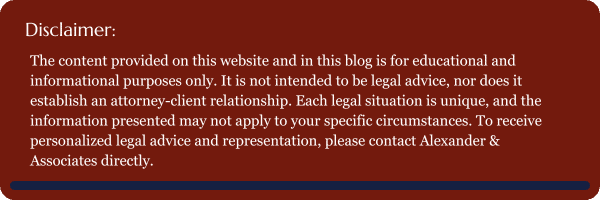Is Staying Together For the Kids a Good Idea?
How many times have you heard a friend, co-worker, or even yourself, say “We’re staying together for the kids,” while being in a pretty miserable marriage? Divorce is never easy, and if you have children, it can be even more complicated. Sometimes, it is best to stay together for the kids, but in many situations, children will benefit from having a peaceful home- which can sometimes only be accomplished by separating.
Divorce may seem like it would hurt your children, but statistics show that the opposite can be true. A bad marriage is proven to have a high negative impact on children.
Your Child’s Needs:
Unconditional love, safety, and security are the three most important emotional needs of a child. An unhealthy marriage is a demonstration of none of those things. Kids are observant, and when they see the chronic conflict with their parents, they learn to expect conflict as normal behavior. If a child is being raised in a home with a toxic
marriage, it greatly increases the chances they will be in unhealthy relationships themselves as adults. After all, this is what they were taught “love” is. According to Terry Gaspard, a divorce therapist and the author of Daughters of Divorce, “Children who observe their parents settling for a miserable marriage might become passive, depressed or pessimistic about their ability to love and be loved in a healthy intimate relationship.” When deciding whether or not to stay together for your kids, it may be better to ask yourself if you want your children to be treated the way you treat your spouse, or how your spouse treats you.”
Adults carry these emotional wounds into adulthood when they internalize their feelings of emotional instability. They are easily able to pick up on tension, regardless of how well you think you’re hiding your problems. Children are curious beings, and the curiosity about ‘what’s going on’ quickly manifests into ambient anxiety. They register that their house is an unstable environment, therefore, they are burned with a constant fear of having to walk on eggshells.
The Psychology Behind It:
In some cases, we see what therapists call the “identified patient”, where the child tries to use their issues to serve as a distraction to their parents. Alternatively, a child may feel as though their problems are invalid, and therefore suppress all emotions and fail to ask for help when they need it.This morphs what should be their childhood experience into what becomes them taking on the role of the savior of their parent’s struggles.
A 2012 study published in the Journal of Youth and Adolescence proves children growing up with parents in a toxic marriage struggle with low self-esteem. In a negative environment, not only do people have a negative attitude towards life and relationships, but also towards themselves. Research further proves that living in a home with high levels of conflict increases the child’s risk of substance abuse (smoking, binge drinking, drug use) when compared to those who come from a low-stress environment.
Divorce itself is stressful enough, but it’s worth weighing out the pros and cons before you choose to “stay together for the kids.” In scenarios that display high levels of conflict and pain and an unhealthy model of love, your child is highly likely to carry the impact of your struggles with them from youth into adulthood.
Not all couples who are struggling in their marriage are in a toxic marriage. Staying in a toxic relationship poses these risks, and it’s important to assess where your relationship falls within these lines. Some conflict is normal, some marriages are worth saving, and only you can determine which better describes your relationship.
If you believe it might be time to consider divorce, please give us a call. At Alexander and Associates, we are ready and prepared to help.
Sources:
Arkowitz, A., Lilienfield, S. (March 2013) Is Divorce Bad for Children? Scientific American, originally published 24, 1, 68-69 (March 2013). https://www.scientificamerican.com/article/is-divorce-bad-for-children/
Wong, B. (May 17. 2016). 7 Ways You Can Damage Your Kids By Staying In a Bad Marriage. Huff Post. https://www.huffpost.com/entry/7-ways-you-can-damage-your-kids-by-staying-in-a-bad-marriage_n_573b4845e4b0646cbeeaf9a9
Morin, Amy. LCSW. (November 11, 2019). How Parent Fighting Affects a Child’s Mental Health. Very Well Family.https://www.verywellfamily.com/how-parents-fighting-affects-children-s-mental-health-4158375#citation-1




0 Comments